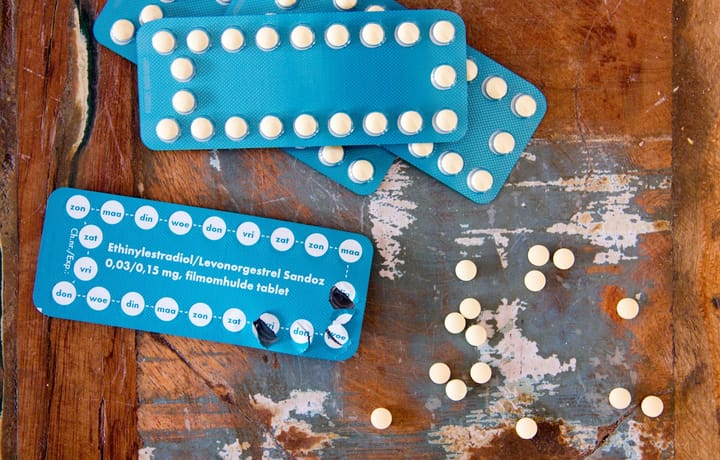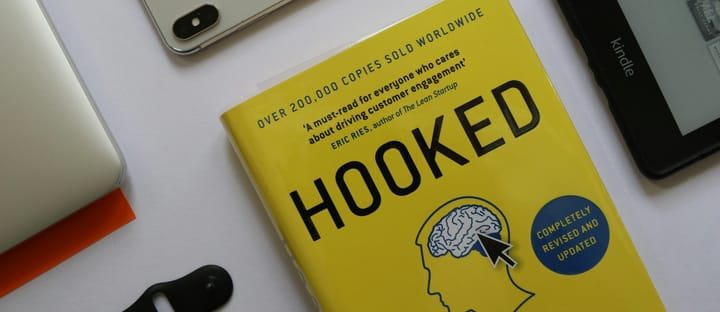Testosterone and the brain: what happens when the male hormone disappears

If testosterone could talk, it would probably complain that it is misunderstood. Most people think of it as the hormone behind gym selfies showing enormous guns, midlife crises, and teenage chaos.
Testosterone is not just a sex hormone.
This post is not about masculinity stereotypes. This is neuroscience. In reality, testosterone is one of the most powerful shapers of the male emotional brain.
It influences how men process stress, how resilient they feel, how motivated they feel, and even how they experience joy. And emerging evidence shows that testosterone acts like an internal mood stabilizer. When it drops to low levels, the brain’s emotional circuitry changes in measurable and profound ways.
That's what this post is about.
The hormone that talks to your neurons
Testosterone is often described as the hormone responsible for deep voices, beard growth, high muscle mass, and male libido. But it is in the brain where it does some of its most fascinating work.
Neurons in the brain’s emotional hubs (such as the amygdala, hippocampus, and frontal cortex) carry receptors that respond directly to testosterone. When the hormone binds to these receptors, it subtly tunes mood, motivation, and stress handling.
Remove testosterone, and these circuits behave very differently. This is especially clear in men treated for advanced prostate cancer, where doctors use drugs to suppress testosterone almost completely. They intentionally shut down the brain’s hormonal signal to the testes, pushing testosterone to castration-level values.
The goal is to slow cancer growth, but the hormonal void sends shockwaves through the entire body. Men often feel drained, lose muscle mass, gain weight, and develop metabolic problems like insulin resistance and higher blood fat. Bones become more fragile, inflammation rises, and sexual function is commonly reduced.
The brain reacts too. Many men receiving this treatment describe a subtle flattening of emotion at first, followed by a heavy sense of low mood as treatment continues. Neuroscience provides clear reasons why.
When testosterone crashes, mood follows.
Prostate cancer itself increases the risk of depression, partly because of the psychological burden of a cancer diagnosis and partly because of the effects of surgery and radiation. Yet the strongest mental health impact consistently appears in men receiving hormone suppression.
Study after study has shown that when testosterone drops to extremely low levels in these men, more than 10 percent develop major depression — a rate far above what is normally seen in that age group.
A major investigation in nearly eighty thousand men showed a clear, stepwise pattern: the longer men stayed on hormone suppression, the higher their risk of depression and psychiatric hospitalization.
Even men in their forties and fifties, who are usually psychologically resilient, show a doubling of depression risk when treated with long-term testosterone suppression.
What the brain actually does with testosterone
Modern imaging techniques have made it possible to observe how testosterone influences brain function in real time. The brain scans show that testosterone alters blood flow and neuron activity in several regions involved in emotional regulation.
The amygdala, which processes fear and stress signals, becomes more reactive when testosterone is present. The hippocampus, which supports memory and emotional balance, also responds strongly to testosterone. The frontal cortex, a crucial center for decision-making and self-control, shows changes in network communication depending on hormone levels.
When testosterone falls fast, these same networks become less synchronized, less dynamic, and more easily overwhelmed by stress. When testosterone is restored, these effects often improve.
Microscopically, testosterone promotes the formation of new synapses, which are the connections between our brain cells. It supports the growth of new brain cells in the hippocampus, our main memory area. And it enhances plasticity — our brain’s ability to adapt. These effects are the biological opposite of what chronic stress does, which is one reason testosterone seems to provide emotional buffering.
On a chemical level, testosterone strengthens serotonin signalling, enhances dopamine and norepinephrine balance. Imaging studies in humans even show that testosterone shifts the density and sensitivity of specific serotonin receptors linked to emotional stability. In simple terms, testosterone acts like a finely tuned emotional stabilizer built into the male brain.
Blocking testosterone receptors: the deeper emotional dip
Newer cancer medications do more than remove testosterone. They block androgen receptors directly or interrupt testosterone production at deeper biochemical levels. It is not merely a low-hormone situation; it is a full communication blackout.
These drugs are excellent at holding back prostate cancer, but their not-so-excellent effects on mood are even stronger. A study of more than thirty thousand men found that these modern blockers more than doubled the risk of depression compared to standard suppression.
For men with advanced prostate cancer, this presents a difficult trade-off: more effective cancer control but a greater impact on mental health.
So ...
From a brain science viewpoint, testosterone is not playing the macho stereotype at all. It acts more like an emotional stabilizer built into the system.
The amount a man has, and how sensitively his brain reacts to it, can influence his moods far more than most people realize.
About the scientific paper:
First author: Richard L. Hauger, USA
Published: Reviews in Endocrine and Metabolic Disorders, November 2022
Link to paper: https://link.springer.com/article/10.1007/s11154-022-09767-0




Comments ()